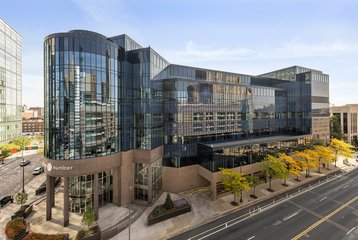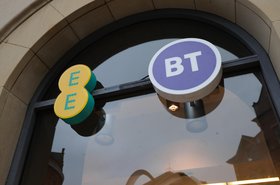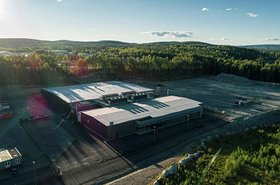Fiber firm Cogent Communications is planning to turn the former Sprint switching site real estate footprint acquired from T-Mobile into a sizeable colocation data center portfolio.
September 2022 saw T-Mobile announce that it was selling its Wireline business to Cogent for a symbolic $1, with the telco operator set to take a $1 billion charge on the deal.
Much of the business sold to Cogent was Sprint‘s legacy US long-haul fiber network, which T-Mobile had acquired as part of its $26bn merger with Sprint in 2020.
However, the sale to Cogent also included more than 40 data centers totaling some 400,000 sq ft (37,160 sqm) of space and a significant real estate footprint totaling 482 technical spaces and switch sites.
During the earnings call for Cogent’s Q2 2023 quarterly earnings this month and reported by Lightwave, Cogent founder and CEO David Schaeffer outlined the company’s plans around Sprint’s data center and switch sites.
On the call, the CEO told analysts that during the 1980s and 90s, Sprint had built a fiber optic network that terminated in tandem switch sites and was designed to allow connectivity to black fibers. Shaeffer said that the network carried exclusively voice traffic until the late 1990s, then carried some proprietary data and a little bit of Internet traffic, but the network is “virtually empty” today, with almost no traffic on it.
“There are 482 technical buildings owned fee simple. There's actually 1.6 million square feet in those facilities,” he said.
“They were literally sitting empty, much like an office building that would have no tenants in it. And we saw value in that and said, we can repurpose that and create a growth business and selling high-capacity optical transport services by selling colocation in that footprint,” he continued. “We are in the process of making that conversion practical. We're connecting it to the rest of the world. We're putting in the correct transponder equipment and OADMs to be able to provision wavelengths quickly.”
The largest 45 sites comprise 1.3 million sq ft (120,775 sqm) and already have 160MW of power, and are the ones the company aims to convert into colocation facilities.
“[Those 45] today generating no revenue, sitting empty, with no connectivity to the rest of the world other than to the Sprint backbone and to ILEC in their territory for TDM interfaces,” Schaeffer said.
The company is in the process of connecting those sites to its metro fiber footprint and converting the power plants from negative 48-volt DC power to 120-volt AC power.
The company will also be removing old equipment. Cogent has some 22,500 racks to clear out from the facilities.
“The data center or the switch sites that we acquired have 22,500 racks of dead equipment that hasn't been in service for at least a decade sitting in them. We have to clear that out,” Schaeffer said.
Cogent will also be taking the active network equipment, putting it in one small cage in the corner in a program called ‘popped in the corners’ to free up space.
“As a result, we will have completely empty, marketable 160MW of power and 1.3 million square feet of space spread across 45 incremental facilities. That's additive to the 55 facilities that Cogent operated pre-acquisition with 70MW of power,” Schaeffer said.
Schaeffer said traditionally Cogent has made around $20 million a year from its data center colocation business. The company previously assumed the Sprint deal could add another $15-$20m annually.
“I think our thinking has changed. And we do think there is a significant incremental opportunity to monetize that in place 160 megawatts of power….we think there may be another $30 million or $40 million of incremental revenue that's not today baked into our forecast.”
So far, the company has converted one of 45 Sprint technical spaces into a Cogent data center.
The company aims to offer both retail colocation – i.e. per rack – and data halls wholesale to other data center providers, cloud, and AI providers. Shaeffer said it will take “at least a year” to make that footprint commercially viable.
Shaeffer added there are almost 300,000 square feet of leased technical space that Cogent will be exiting. The company is already working to exit those leases, which will save the company $180m in the US and $25 million internationally.







